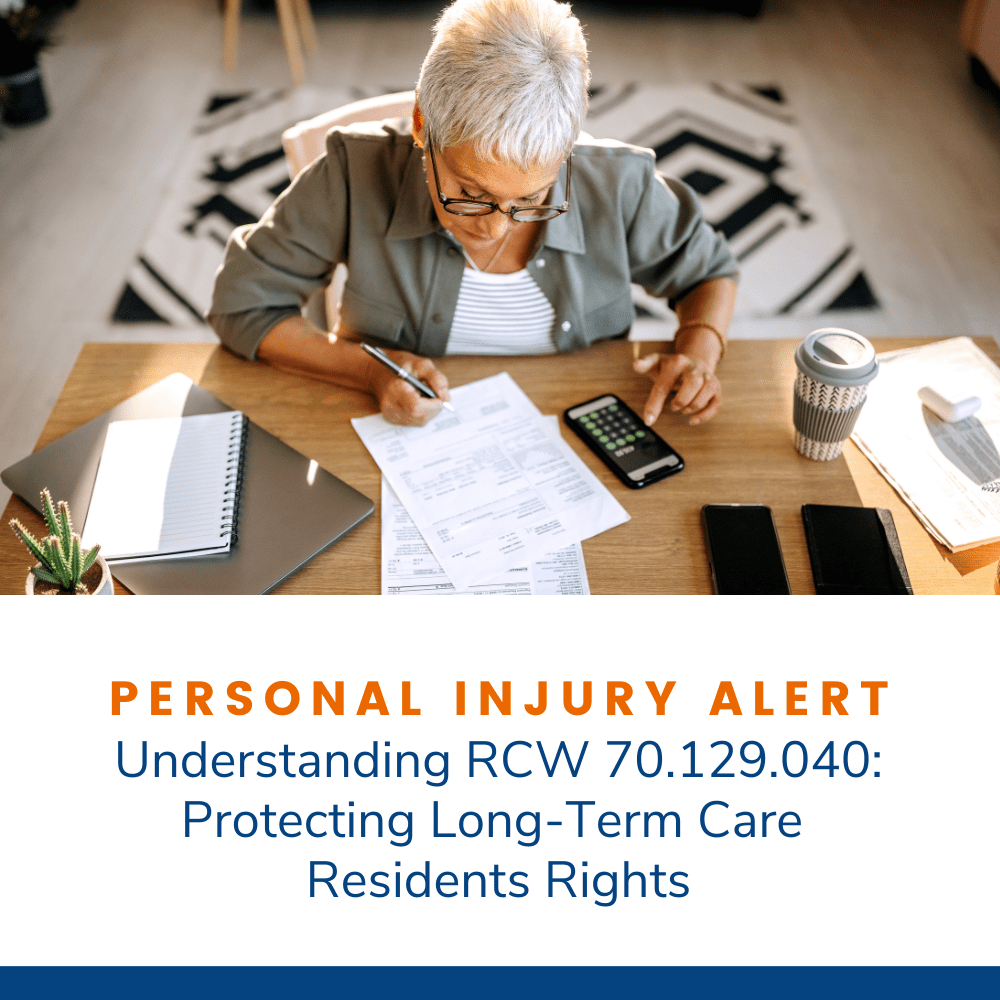
When it comes to long-term care, the security and management of personal funds can often be a significant concern for residents and their families. The Washington State law, RCW 70.129.040, lays out essential protections regarding the financial affairs of residents in adult family homes. In this post, we’ll break down the key provisions of this statute and what they mean for residents.
Resident Autonomy in Financial Management
Residents have the right to manage their own financial affairs. This means that no adult family home can mandate that residents deposit their personal funds with the facility. This autonomy is crucial for residents to maintain control over their finances, ensuring they can make decisions that best suit their needs and preferences.
Facility Management of Personal Funds
If a resident chooses to have the facility manage their personal funds, the facility must follow strict guidelines:
- Separate and Interest-Bearing Accounts: Any personal funds exceeding $100 must be placed in interest-bearing accounts separate from the facility’s operating funds. This ensures that residents’ money is safeguarded and can earn interest over time. For funds under $100, they can be held in either a non interest-bearing account or petty cash fund.
- Accountability and Transparency: The facility is required to maintain a clear and separate accounting system for each resident’s personal funds, preventing any commingling with facility funds or other residents’ money. Residents or their representatives can request access to these financial records to verify proper management.
Funds Upon Resident’s Death
In the unfortunate event of a resident’s death, the facility is obligated to convey the resident’s remaining funds and a final accounting to the estate’s administrator or the appropriate state department within 30 days. This provision ensures that residents’ funds are handled appropriately and efficiently, providing peace of mind to both residents and their families.
Security Deposits and Prepaid Charges
Funds paid to the facility as security deposits or prepaid charges also fall under specific regulations. Any amount exceeding $100 must be deposited in an interest-bearing account, with the same transparency and accountability requirements applied. Residents must be fully informed about what these funds are used for, and any retention of funds in the event of a resident’s transfer or discharge must be disclosed in understandable language.
Protecting Residents’ Rights
The law recognizes the potential for unfair practices in managing residents’ funds. Violations of this statute can be considered unfair or deceptive acts under the Consumer Protection Act, providing an additional layer of protection for residents. The law prioritizes the claims of residents regarding their funds over any creditors of the adult family home, ensuring that their financial rights are safeguarded.
GLP Attorneys Supports Nursing Home Abuse Victims
If you or a loved one is considering adult family home care and you suspect abuse is occurring we recommend contacting an attorney right away. GLP Attorneys has vast experience supporting clients with their nursing home abuse cases. Our experienced attorneys have helped nursing home abuse clients reach seven-figure settlements and receive the justice they deserve.
If you are concerned that you or a loved one may be a victim of nursing home abuse or neglect, contact practice leader Jim Gooding at 1 (800) 273 – 5005 for a free consultation.
